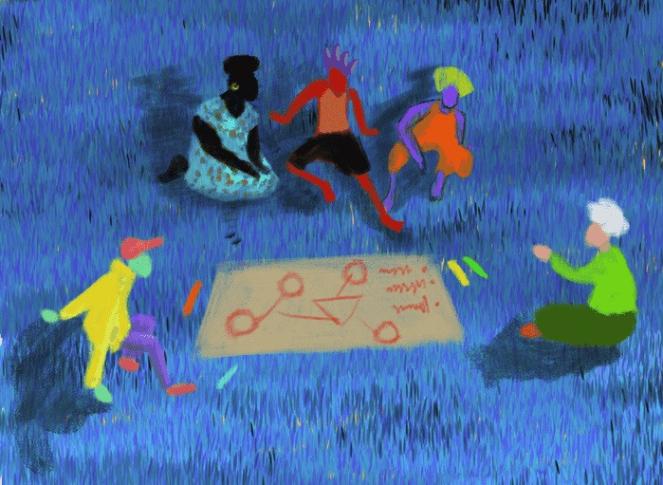
In 2020, APC advocated for a renewed commitment to multistakeholder internet governance processes and continued to push for a human rights-based approach to global cybersecurity norms and standards.
Securing the future of multistakeholder internet governance
APC advocated for the future of the Internet Governance Forum (IGF) by participating in the UN Secretary General’s Roadmap on Digital Cooperation, where we underscored the importance of multilateral and multistakeholder engagement. The roadmap and a preparatory paper (so-called “Options Paper”) prepared by the governments of Germany and the United Arab Emirates is a turning point in how internet governance discussions are framed and has an impact on the evolution of the internet governance ecosystem. We welcomed the paper’s emphasis on an IGF+ institutional framework, as well as the roadmap’s indication that reinvigorating the IGF would be an important way forward.
Through APC’s work, more voices from the global South were represented at session panels at the IGF. This included an intervention from APC’s executive director, Chat Garcia Ramilo, at the global forum’s opening session, where she emphasised the structural social divides underlying the pandemic, including digital exclusion, and the emerging threats to human rights in measures adopted by governments in response to the pandemic. Stressing that a contextual approach to addressing social and digital exclusion is necessary, she said that community connectivity and support for small network operators should be an essential part of government post-pandemic recovery programmes.
APC mobilised agreement on a consensus document among several organisations, networks and industry stakeholders on the appointment of the United Nations Envoy on Technology. The document was the result of four consultations over six months, allowing for broad and diverse contributions. It highlighted the importance of the envoy’s mandate, and outlined the challenges the mandate should respond to, including access to ICTs for marginalised communities, and the need for a renewed commitment to multistakeholder internet governance.
Setting human rights standards for cybersecurity norms and principles
APC contributed to global cybersecurity norms and standards by producing two publications that were considered groundbreaking to their approach to the topic. “Why gender matters in international cyber security” – which was cited in a High Commissioner for Human Rights’ report – argues that a gender analysis on international cybersecurity can generate more nuanced understandings of the dynamics which shape policy and practice in this area. In “Putting cybersecurity on the rights track” we laid out an approach to cybersecurity that takes technological, legal and social perspectives into consideration, and which does not differentiate between national security interests and the security of the global internet.
We also strengthened our presence and the voice of civil society in global cybersecurity processes by participating in and co-chairing sessions during the UN’s Informal Multi-Stakeholder Cyber Dialogue. The dialogue contributes to the UN Open-Ended Working Group (OEWG) in which all member states are invited to participate. Part of the OEWG’s mandate is to discuss the development of rules, norms and principles of responsible state behaviour in cyberspace, and their implementation. Together with partners, APC presented inputs from civil society organisations at the dialogue. The outcomes of this process may end up having a significant influence on trends and policies in cybersecurity globally, with implications for human rights worldwide.
Lovable cat mascot stars in the book "How the Internet Really Works", co-authored by Mallory Knodel
Individual APC member Mallory Knodel made the complexities of internet governance more accessible through co-authoring the book "How the Internet Really Works: An Illustrated Guide to Protocols, Privacy, Censorship, and Governance". The book uses a playful mascot called “Catnip” (which stands for censorship, access, telecommunications, networks and internet protocols) to guide readers through the fundamentals of internet architecture. In clear language, accompanied by whimsical illustrations by illustrator and co-author Ulrike Uhlig, it makes highly technical topics accessible. It is a call to action, laying out a roadmap for the reader to use their new-found knowledge to help create digitally inclusive, rights-respecting internet laws and policies.